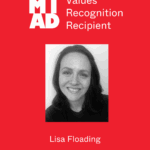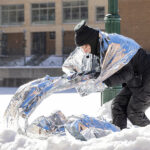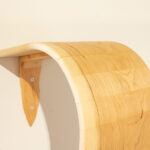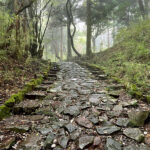Assess, Situate, Disperse – Addressing Diversity of Artistic Approaches in Foundations
In addition to students who continue to navigate and place themselves within more traditional contexts, many students will invent paths that will lead them to structure their own specialties (e.g., to become a sculptor/writer/geographer). A foundations program can support both avenues while also promoting mutual respect among the students and faculty. This panel addresses how to meaningfully introduce a broad history of ideas with a focus on artist roles, and to address ways in which to elicit student aptitude and promise through forms of general practice that can serve to guide students towards the fields they will make their own.
Chair: Adelheid Mers, Adjunct Associate Professor
Affiliation: School of the Art Institute or Chicago
Contact: amers@artic.edu
Everything is Appropriated in a Post Modern World
Join this panel discussion about confronting ownership of imagery. Come to talk about the differences between using photo reference, appropriation and plagiarism. Can we help our students understand this ethical question in art making since it may have been a big part of their art class in high school. It seems that since most college aged students are products of the post-modern age; they may need even more assistance sorting out this issue than in the past. Especially in an era that allows us to right click and save an image from the Internet into our own power points or collection of “image ideas.” This use of found imagery can be used in the form of appropriation, is an ethical question, not one with a simple answer, becomes even more critical.
Chair: Brooke Hunter-Lombardi, Foundation Studies Instructor
Affiliation: Columbus College of Art & Design
Contact: Bhunter-Lombardi@ccad.edu
Fostering Successful Art Students: Helicopter parents and other hazards
What is FERPA (The Family Education and Privacy Act) and when is it appropriate to seek student authorization to disclose information? Is there a trend for art schools, colleges and universities to connect more with parents? What are some of the creative strategies in coping with parents and assisting students in gaining greater independence? This panel will address different strategies that will focus upon solutions both inside and outside the classroom.
Chair: Barbara Giorgio-Booher, Assistant Professor
Affiliation: Ball State University, Department of Art
Contact: bgiorgio@bsu.edu
Fostering the New Millennial in the New Learning Environment
The panel will discuss innovative techniques for engaging new millennials in student centered learning or active learning. Since this generation is known to utilize group skills in the way they socialize and learn, old techniques such as brainstorming and mindmapping can be implemented in a new way. This panel will discuss how the new millennials can benefit from the new learning environments that are being fostered within colleges and universities at the present time.
Chair: Joan Giampa Petro
Affiliation: George Mason University
Contact: joni3333@verizon.net
Silencing the Pronounced: Light, sound, motion
Students are working in ways that expand the traditional principles of three-dimensional spatial perception. The contemporary environmental problems share in expanding traditional conditions of spatial properties by exploring light, sound, and motion. This session invites experimental and traditional approaches to considering the three-dimensional environment.
Co-Chairs: Amos Scully, Assistant Professor of Foundations Studies
Roberley Bell, Professor of Foundations Studies
Affiliation: Rochester Institute of Technology
Contact: aasfaa@rit.edu
rabfaa@rit.edu





